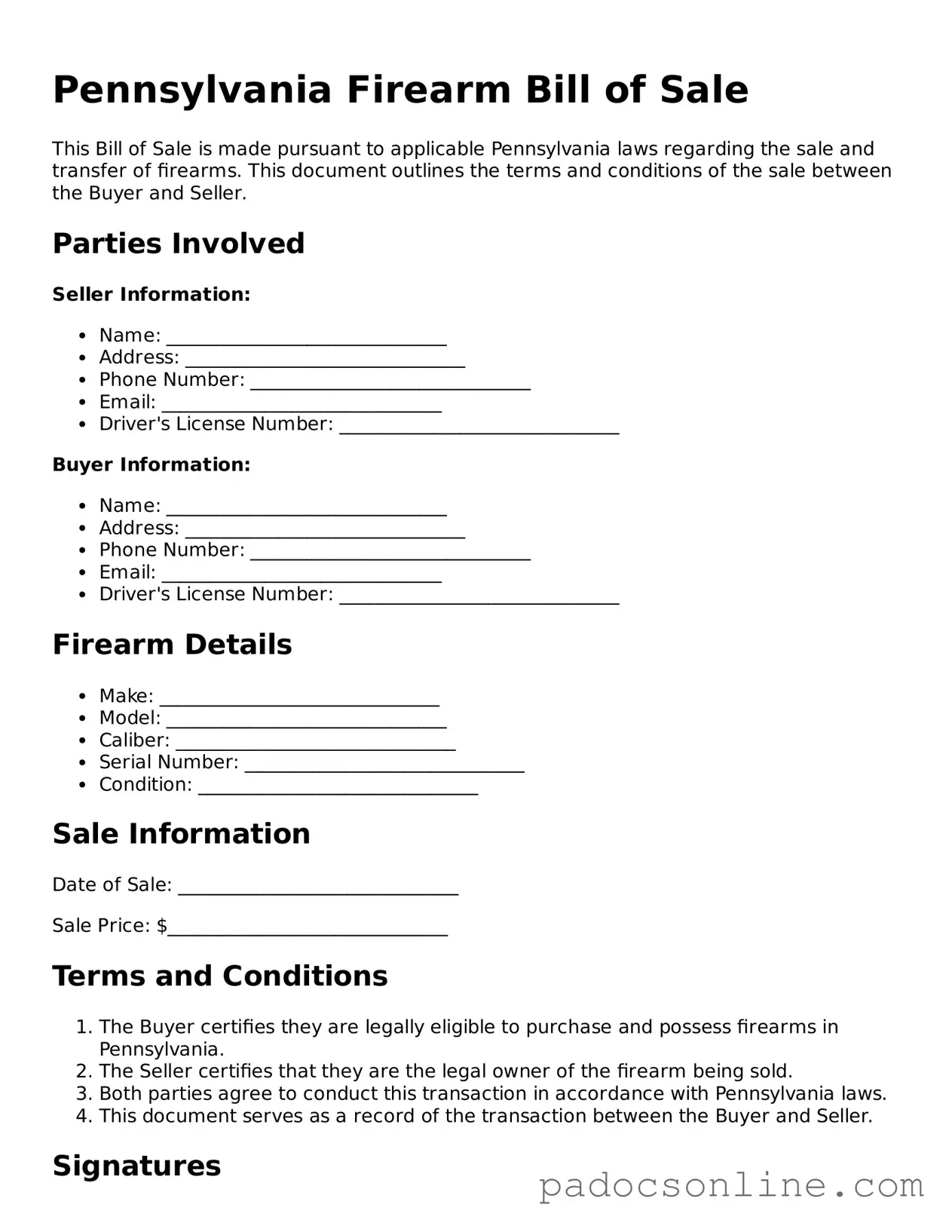Filling out the Pennsylvania Firearm Bill of Sale form can seem straightforward, but many individuals make common mistakes that can lead to complications. One frequent error is failing to provide complete information about the firearm being sold. This includes details such as the make, model, caliber, and serial number. Omitting any of this information can result in confusion or disputes later on.
Another mistake is neglecting to include the buyer's and seller's full names and addresses. Accurate identification is crucial in any transaction, especially one involving firearms. Missing or incorrect information can make it difficult to verify ownership and may lead to legal issues down the line.
Many people also overlook the necessity of both parties signing the form. A signature serves as a confirmation of the agreement and protects both the buyer and the seller. If either party fails to sign, the document may not hold up in the event of a dispute.
In addition, some individuals forget to date the Bill of Sale. The date is an important aspect of the transaction, as it establishes when the sale occurred. Without a date, questions may arise regarding the timeline of ownership, which can complicate matters if any issues arise later.
Another common error involves not providing a copy of the Bill of Sale to both parties. Each person should retain a copy for their records. This documentation is essential for future reference, especially if questions about the transaction arise later.
People sometimes misinterpret the required identification documentation. Pennsylvania law requires that both parties present valid identification, but some individuals fail to bring appropriate forms of ID. This oversight can delay the transaction or even prevent it from occurring altogether.
Additionally, some sellers mistakenly believe that they can sell firearms without conducting a background check on the buyer. While private sales may not always require this, it is advisable to follow best practices to ensure that the buyer is legally eligible to purchase a firearm.
Another mistake is not being aware of local laws and regulations surrounding firearm sales. Each municipality may have specific requirements that must be met. Ignoring these can lead to fines or legal complications.
Finally, individuals may rush through the process, leading to careless errors. Taking the time to carefully read through the form and double-check all entries can prevent many of these issues. A thorough review ensures that the transaction is completed smoothly and legally.
